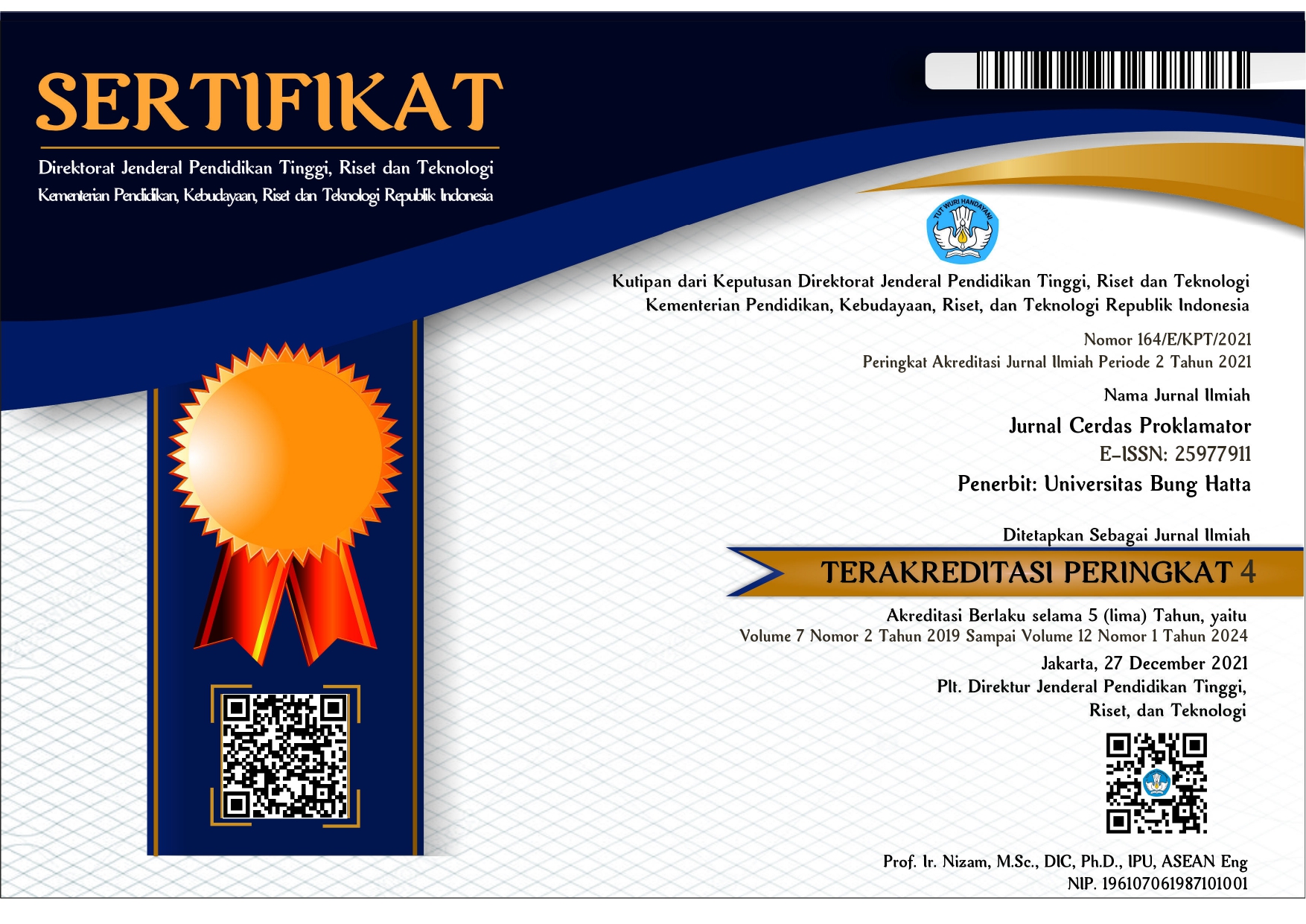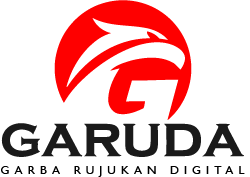UPAYA PENINGKATAN HASIL BELAJAR MELALUI MODEL PEMBELAJARAN PROBLEM BASED LEARNING (PBL) PADA MATA PELAJARAN IPAS DI SDN 34 PALEMBANG
Keywords:
Problem Based Learning, Hasil Belajar, IPASAbstract
This study aims to improve student learning outcomes in Natural and Social Sciences (IPAS) subjects in elementary schools by using the problem based learning (PBL) learning model. The research method used by researchers is Classroom Action Research (PTK) which is carried out in two cycles. Each cycle includes the stages of planning, implementation, observation, and reflection. The research subjects consisted of 30 students of class V.A at State Elementary School 34 Palembang. The results showed that the implementation of PBL improved students' learning outcomes, as seen from the gradual increase in students' average scores in each cycle: pre-cycle (61.3%), cycle I (64.4%), and cycle II (83.4%). This finding confirms that PBL is an effective learning model to improve learning outcomes in IPAS subjects at the primary school level.
References
Anggrayni, M., & Apreasta, L. (2022). Pengembangan Buku Ajar Tematik Terpadu Berbasis Problem Based Learning Di Kelas V Sd. Jurnal Cerdas Proklamator, 10(1), 69–76. https://doi.org/10.37301/cerdas.v10i1.117
Anugrah, M. (2019). Penelitian Tindakan Kelas:(Langkah-Langkah Praktis Pelaksanaan Penelitian Tindakan Kelas). Penerbit LeutikaPrio.
Arifin, M. B. U. B. (2018). Buku ajar metodologi penelitian pendidikan. Umsida Press, 1–143.
Chaidam, O., & Poonputta, A. (2022). Learning Achievement Improvement of 1st Grade Students by Using Problem-Based Learning (PBL) on TPACK MODEL. Journal of Education and Learning, 11(2), 43. https://doi.org/10.5539/jel.v11n2p43
Eka Ariyanti, Y., & dkk. (2023). Peningkatan Aktivitas Dan Hasil Belajar Siswa Menggunakan Model Problem Based Learning (Pbl) Dengan Menggunakan Media Pembelajaran Video Mata Pelajaran Ipas Kelas Iv Sd Negeri 2 Tegalombo. Jurnal Ilmiah Pendidikan Dasar ISSN Cetak: 2477-2143 ISSN Online: 2548-6950, 08(September), 2543–2559.
Enjoni, E., & Febriyanto, F. (2020). Peningkatan Hasil Belajar Siswa Sd Menggunakan Model Problem Based Learning Berbasis Keterampilan Proses Sains Pada Mata Pelajaran Ipa. Jurnal Cerdas Proklamator, 8(2), 64–76. https://doi.org/10.37301/jcp.v8i2.60
Febiani Musyadad, V., Supriatna, A., & Mulyati Parsa, S. (2019). Penerapan Model Pembelajaran Problem Based Learning Dalam Meningkatkan Hasil Belajar Siswa Pada Pelajaran Ipa Pada Konsep Perubahan Lingkungan Fisik Dan Pengaruhnya Terhadap Daratan. Jurnal Tahsinia, 1(1), 1–13. https://doi.org/10.57171/jt.v1i1.13
Ginting, R. F., Ramadhani, S., & Juniarti, I. (2024). Menyiasati Tantangan Pelaksanaan Penelitian Tindakan Kelas. Sindoro: Cendikia Pendidikan, 3(8), 10–20.
Gulo, A. (2022). Penerapan Model Pembelajaran Problem Based Learning Dalam Meningkatkan Motivasi Dan Hasil Belajar IPA. Educativo: Jurnal Pendidikan, 1(1), 334–341. https://doi.org/10.56248/educativo.v1i1.58
Jacub, T. A., Marto, H., & Darwis, A. (2020). Model pembelajaran Problem Based Learning dalam peningkatan hasil belajar IPS (studi penelitian tindakan kelas di SMP Negeri 2 Tolitoli). Tolis Ilmiah: Jurnal Penelitian, 2(2).
Jailani, J., Sugiman, S., & Apino, E. (2017). Implementing the problem-based learning in order to improve the students’ HOTS and characters. Jurnal Riset Pendidikan Matematika, 4(2), 247. https://doi.org/10.21831/jrpm.v4i2.17674
Kasuga, W., Maro, W., & Pangani, I. (2022). Effect of Problem-Based Learning on Developing Science Process Skills and Learning Achievement on the topic of Safety in Our Environment. Journal of Turkish Science Education, 19(3), 872–886. https://doi.org/10.36681/tused.2022.154
Kusmiati, E., Kusnadi, D., & Latipah, L. (2019). Penerapan Model Pembelajaran Problem Based Learning Dalam Meningkatkan Hasil Belajar Siswa Pada Pembelajaran Ipa Dalam Memahami Konsep Hubungan Antara Struktur Organ Tubuh Manusia Dengan Fungsi Dan Pemeliharaannya. Jurnal Tahsinia, 1(1), 49–62. https://doi.org/10.57171/jt.v1i1.36
Lewar, Y. E. R., El Puang, D. M., & Lawotan, Y. E. (2023). Penerapan Model Problem Based Learning Melalui Lesson Study untuk Meningkatkan Hasil Belajar IPAS Kelas V Sekolah Dasar. Pendas; Jurnal Ilmiah Pendidikan Dasar, 08(03), 1730–1740.
Liu, Y., & Pásztor, A. (2022). Effects of problem-based learning instructional intervention on critical thinking in higher education: A meta-analysis. Thinking Skills and Creativity, 45(December 2021). https://doi.org/10.1016/j.tsc.2022.101069
Mulyati, S., & Evendi, H. (2020). Pembelajaran matematika melalui media game quizizz untuk meningkatkan hasil belajar matematika SMP. GAUSS: Jurnal Pendidikan Matematika, 3(1), 64–73.
Mursid, R., Saragih, A. H., & Hartono, R. (2022). The Effect of the Blended Project-based Learning Model and Creative Thinking Ability on Engineering Students’ Learning Outcomes. International Journal of Education in Mathematics, Science and Technology, 10(1), 218–235. https://doi.org/10.46328/ijemst.2244
Nisfia Rani, G. M. (2023). PENINGKATAN HASIL BELAJAR IPAS MATERI TRANSFORMASI ENERGI MELALUI MODEL PEMBELAJARAN PROBLEM BASED LEARNING PADA KELAS IV SEKOLAH DASAR. Pendas?: Jurnal Ilmiah Pendidikan Dasa, 45(617), 589–590.
Nofriansyah, Sri Rahayu, dan J. W. (2024). Cooperative Learning Model of Group Investigation Technique in Economic Learning. Journal of Economics and Economic Education, 1(1), 41–48.
Nofriansyah, Martiah, A., & Vhalery, R. (2018). The Effect Of Learning Model Logan Avenue Problem Solving Heuristic To The Student’s Learning Activity. International Journal of Scientific and Research Publications, 8(10), 279–286. https://doi.org/10.29322/IJSRP.8.10.2018.p8236
Nurochman, R., & Diniya. (2022). Pengaruh Penerapan Model Pembelajaran Problem Based Learning ( PBL) Dengan Pendekatan Blended Learning Terhadap Higher Order Thinking Skill ( HOTS ) Siswa SMP/MTS Pada Materi Sistem Gerak Manusia. Jurnal of Natural Science Laerning, 01(01), 61–67. https://jom.uin-suska.ac.id/index.php/JNSL/article/view/14%0Ahttps://jom.uin-suska.ac.id/index.php/JNSL/article/download/14/8
Polyiem, T., & Nuangchalerm, P. (2022). Self-development of Teacher Students through Problem-Based Learning. Journal of Educational Issues, 8(1), 747. https://doi.org/10.5296/jei.v8i1.19880
Rosdiana, S., Zaenah, Y. I., Rahmawati, B., Aulia, S. N., & Zainudin, Z. (2023). Isu Tentang Jumlah Siklus Penelitian Dalam Penelitian Tindakan Kelas. Jurnal Kreativitas Mahasiswa, 1(1), 76–84.
Saputra, N. (2021). Penelitian tindakan kelas. Yayasan Penerbit Muhammad Zaini.
Setiawan, A. (2021). Problem Based Learning (PBL) Model For The 21st Century Generation. Social, Humanities, and Education Studies (SHEs): Conference Series, 4(6), 290–296. https://jurnal.uns.ac.id/shes
Susilo, H., Chotimah, H., & Sari, Y. D. (2022). Penelitian tindakan kelas. Media Nusa Creative (MNC Publishing).
Tanjung, D. S., Pinem, I., Mailani, E., & Ambarwati, N. F. (2024). Penelitian Tindakan Kelas. PT. Sonpedia Publishing Indonesia.
Thorndahl, K. L., & Stentoft, D. (2020). Thinking critically about critical thinking and prob-lem-based learning in higher education: A scoping review. Interdisciplinary Journal of Problem-Based Learning, 14(1), 1–21. https://doi.org/10.14434/ijpbl.v14i1.28773
Vhalery, R., & Nofriansyah, -. (2018). Cooperative Learning in the Learning Activity of Students. International Journal of Scientific and Research Publications (IJSRP), 8(9). https://doi.org/10.29322/ijsrp.8.9.2018.p8110
Widiasworo, E. (2018). Mahir penelitian pendidikan modern metode praktis penelitian guru, dosen dan mahasiswa keguruan. Araska Publisher.
Wijayanto, B., Sumarmi, Utomo, D. H., Handoyo, B., & Aliman, M. (2023). Problem-Based Learning Using E-Module: Does It Effect on Student’S High Order Thinking and Learning Interest in Studying Geography? Journal of Technology and Science Education, 13(3), 613–631. https://doi.org/10.3926/jotse.1965
Yanto, F., & Enjoni, E. (2021). Penerapan Model Pembelajaran Pbl (Problem Based Learning) Untuk Meningkatkan Kemampuan Pemecahan Masalah Siswa Di Kelas V Sekolah Dasar. Jurnal Cerdas Proklamator, 9(1), 9–19. https://doi.org/10.37301/jcp.v9i1.74
Downloads
Published
Issue
Section
License
Copyright (c) 2024 Jurnal Cerdas Proklamator

This work is licensed under a Creative Commons Attribution 4.0 International License.
Copy right in each article belong to the authors.
1. The author acknowledges that the Journal Cerdas Proklamator as a publisher who publishes for the first time with the
Creative Commons Attribution 4.0 International License.
2. The Author can enter the writing separately, manage the non exclusive distribution of manuscripts that have been published in this journal into the other versions (eg sent to the repository of the author's institution, publication in book, etc), by acknowledge that the manuscript was first published in the Jurnal Cerdas Proklamator.
























